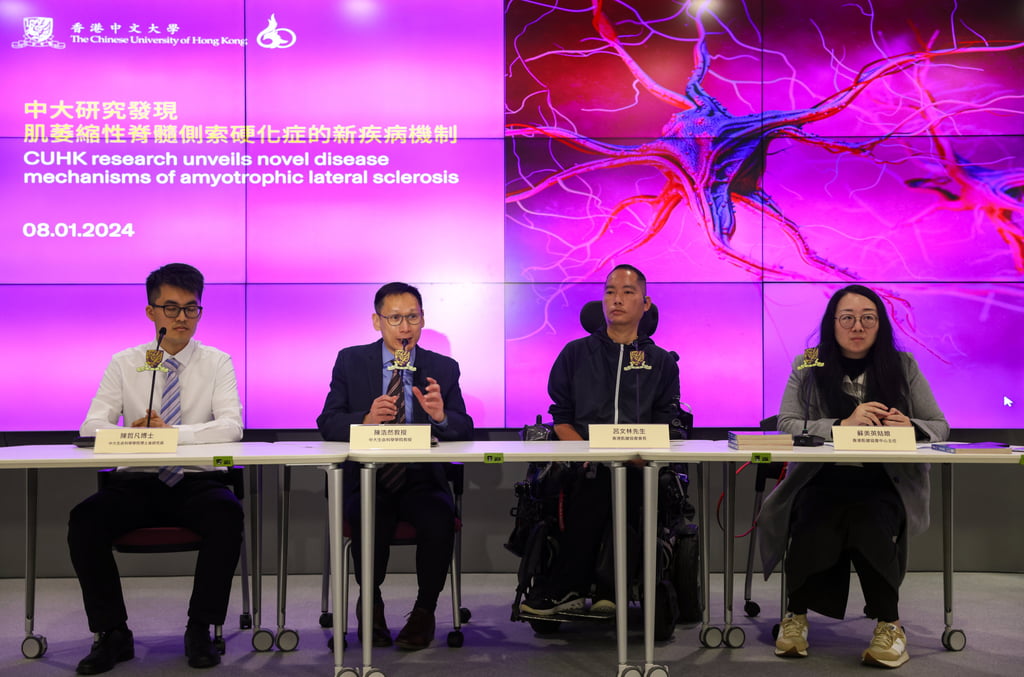Hong Kong researchers discover mechanism that may provide ‘new angle’ in developing treatments for ALS
- The Chinese University of Hong Kong and Oxford University collaborated for the study on the incurable rare neurodegenerative disorder, with further tests still to come
- ‘If we can develop methods or treatments targeting this newly discovered signalling pathway, we may be able to suppress the death of motor neurons,’ expert says

Researchers at the Chinese University of Hong Kong (CUHK) have identified a mechanism for amyotrophic lateral sclerosis (ALS), a finding that may shed light on developing treatments for the currently incurable rare neurodegenerative disorder.
Further experiments on animals were still needed before moving onto clinical trials for an ALS treatment, which was still at a preliminary stage of development, researchers said on Monday.
ALS is a rare neurodegenerative disease that affects nerve cells in the brain and spinal cord, which can cause muscle weakness, loss of coordination and slurred speech, among other things.
Patients can also suffer from respiratory failure when breathing muscles are affected.

The study, conducted in collaboration with Oxford University, found that ALS patients had an uneven distribution of a protein named YY1 in their cells.